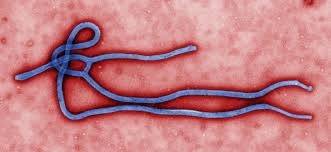A new antimalarial drug developed by Novartis has delivered striking results in late-stage trials, raising hopes of a powerful new weapon against rising drug resistance in Africa. The treatment, known as GanLum (ganaplacide–lumefantrine), cured more than 97% of patients with uncomplicated malaria in a Phase III trial spanning 12 African countries.
Developed after high-speed robotic screening of millions of compounds at a Novartis research site in San Diego, ganaplacide—the novel component of GanLum—was identified from a library of over 2 million molecules. Combined with a new once-daily formulation of the established antimalarial lumefantrine, the drug attacks the parasite on multiple fronts and is designed specifically to overcome emerging resistance.
In the Phase III study, GanLum was tested in 1,688 adults and children at 34 sites across 12 African nations. It matched or outperformed standard artemisinin-based combinations, achieving cure rates above 97% even in regions where parasites show partial resistance to artemisinin. ESPN.com Malaria still kills close to 600,000 people each year, most of them young children in sub-Saharan Africa.
According to Novartis’ Dr. Sujata Vaidyanathan, GanLum “has the potential to not just treat the disease but also to work against resistant parasites and additionally block transmission” by targeting the parasite during its sexual development stage in mosquitoes—a key step in stopping spread. That transmission-blocking effect has been confirmed in lab and field assays that show strong activity against mature gametocytes, the forms taken up by mosquitoes.
The advance comes amid growing concern over artemisinin resistance reported in parts of East Africa, including Rwanda and Uganda, where delayed parasite clearance and genetic markers of resistance have been detected. A non-artemisinin option is therefore seen as crucial back-up. “GanLum could represent the biggest advance in malaria treatment for decades,” said Professor Abdoulaye Djimdé of Mali, who worked on the trials, citing its activity against multiple parasite forms and resistant strains.
GanLum is taken as once-daily granules for three days, a regimen easier than some existing therapies but still vulnerable to the adherence problems that dog multi-day treatments. Separate research presented alongside the trial featured experimental single-dose combinations, but experts say GanLum’s novel mechanism and longer-lasting protection make it the most advanced next-generation candidate.
Novartis and its partner Medicines for Malaria Venture plan to seek regulatory approvals soon and say, if all goes well, GanLum could reach patients within 12–18 months, supplied on a not-for-profit basis in malaria-endemic countries.






















